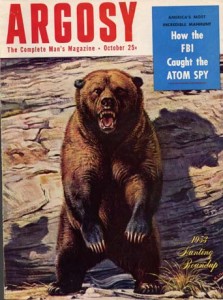Hack writers are sometimes quite successful, even admired.
But so far as I can see, they are of slight use to humanity.
John Gardener
I don™t get John Grisham. Never have, really. But I also never figured it was worth the effort. He writes crap that sells. (As one critic notes, his second novel, The Firm, œsold a bazillion copies. Not technically accurate, perhaps, but close enough.) I read a couple of his novels and didn™t see any reason to read more.
But last year (11/09) he released his first collection of stories, Ford County. I read a couple of reviews that seemed favorable. One comment I found particularly interesting in Janet Maslin™s comparison of Ford County to a new story collection by Stephen King. She wrote that Grisham œcould accomplish in 40-page virtual synopses what he normally does in 400-page novels. (That review is here.) To me, his novels seem largely like Steven Segal movies: same hero, different title. But I was taught that shorter forms of fiction required the writer to distill language, that is, to cleanse the story of the extraneous, to boil down the words, as it were, to get more from less. That™s what I thought Ms. Maslin was saying Grisham had accomplished here, so I thought this collection was worth a read.
I was wrong.
I should probably just realize that Grisham™s writing doesn™t do anything for me and leave it at that. But what I found as I read the stories was that my mood went from expectant willingness to enter his world, to wondering why I was there, and finally, to feeling like I was fleeced. I can™t really see any advantage to criticizing a wildly successful author. But at the same time, I am pissed off that I read these stories and feel like I need to say something about that.
As for the stories, there are seven in the collection, each running around 40 pages. Too long to be considered short stories, and too short to be novellas. Depending on one™s definition, they might be considered novelettes. Apparently, they started out as ideas for novels but, in Grisham™s words, œthey just didn’t make it (see here and here).And therein lies the first problem with the stories. Unmoored from any stylistic definition, the stories lack the discipline inherent in form. What we end up with is half-baked ideas. Well-written, to a point, but not really complete.
The second problem, which is actually much deeper, is that the stories have no heart. No soul. The way that comes across to me is that after each story I found myself asking, œWhy did he bother writing it? Why did he think this is worth reading? Because the stories aren™t worth reading. And ultimately, that is probably the worst thing I can say about a story.
I realize that it may be too much to ask more of Grisham that an entertaining diversion. But I didn™t even get that satisfaction. If I were to analyze it further, I think I would suggest that he has has set up a number of situations and placed characters in them, rather than the other way around. As a result, we are left with characters he doesn™t seem to care much about, just situations he finds interesting. I think that™s why once each story ends up so unsatisfying. There is no real resolution, or growth, no real character development. Once the situation plays out, he ends the story.
In Blood Drive, for example, he winds up the story useing an old stand-by from Westerns: a bar brawl. Police arrive, characters are hauled off the stage, and now he™s free to wind the story up by summarizing how everyone fared in the aftermath. In Michael™s Room, a defense lawyer who successfully defends a doctor in a malpractice suit is kidnapped by the parents of the plaintiff. The lawyer endures a harrowing experience, including a mock trial in the severely deformed plaintiff™s room. The lawyer is certain his kidnappers mean to kill him. Instead, at the end of the story, he is dropped back off by his car unharmed. His biggest concern is how to explain to his wife that he™s three hours late for dinner.
I don™t know. I think characters “ and readers “ deserve better. FWIW, here are a few links to what real reviewers thought (the list is online here).
- New York Times review by Janet Maslin
- New York Times review by Ron Powers
- Washington Post review by Carolyn See
- BookPage review by Eliza Borne
- USA Today review by Deirdre Donahue
- BookReporter.com review by Stuart Shiffman
- Christian Science Monitor review by Erik Spanberg (Spanberg takes Grisham to task for, among other things, œmangling of the Southern colloquialism ˜y™all™.)
